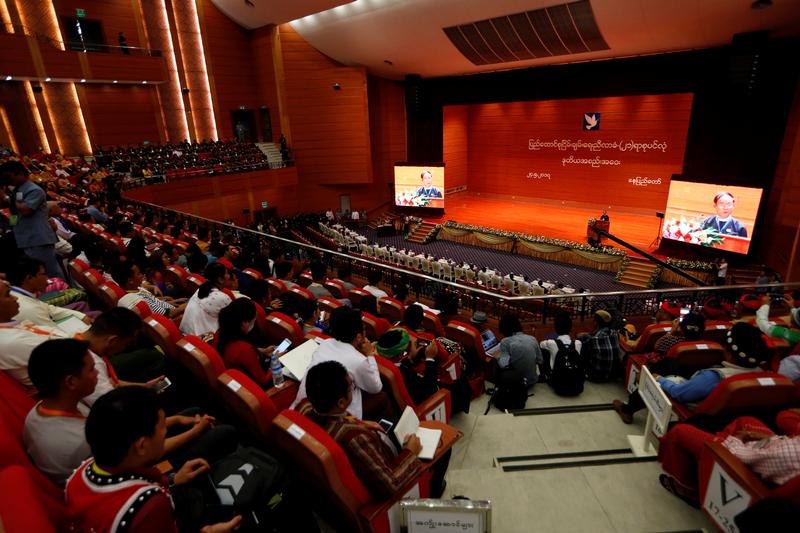Not for the first time, plans to hold the next iteration of the government’s self-styled “21st Century Panglong Conference” — its marquee peace process forum — have been pushed back. Instead of convening late this month, as was announced in November, the third round of the high-level summit will not take place until February.
Aung Soe, a member of the government’s Peace Commission, cited “hurdles” including a failure to hold national-level political dialogues involving some signatories to the Nationwide Ceasefire Agreement (NCA) as reason for the delay.
Another factor blamed for forcing the postponement, he said, was as-yet unsuccessful overtures to convince NCA non-signatories to sign the accord ahead of the conference, which was originally slated to be held during the last week of this month.
“Some hurdles have remained in holding national-level political dialogues. Also, we are endeavouring to get non-signatories to sign the NCA,” Aung Soe said. “It is the 22nd of January today and we still have many tasks left to accomplish. It is no longer possible to hold the conference this month. It has to be rescheduled for next month.”
He added that organisers of the 21st Century Panglong Conference, known alternatively as the Union Peace Conference, were tentatively targeting a reconvening of the summit to coincide with Burma’s Union Day, which falls annually on 12 February.
The previous decision to hold the next conference in late January was agreed at a Joint Implementation Coordination Meeting on 27 November in the nation’s capital Naypyidaw.
Among Burma’s many non-state armed groups, only eight are signatories to the NCA. About a dozen others are not, hobbling the abstainers’ ability to participate in the peace process on an official level and leading to criticism of the 21st Century Panglong Conference’s relevance, given its lack of inclusivity.
Most NCA non-signatories have opted not to join the agreement, while a handful of ethnic armed groups have, to date, largely been spurned by the government as Naypyidaw has sought to codify a framework for resolving Burma’s numerous and long-running civil conflicts.
[related]
Part of that framework involves the holding of “national-level dialogues,” which NCA signatories based in both Shan and Rakhine states have been unable to do. Those signatories have accused authorities of obstructing their ability to do so.
The second 21st Century Panglong Conference was held in May 2017, an event that was also convened behind schedule. In August 2016, State Counsellor Aung San Suu Kyi’s office announced an intention to hold the high-level peace summits every six months. The inaugural “Panglong” took place from 31 August to 3 September, 2016.
The overall participatory framework is based on the NCA and a first-of-its-kind Union Peace Conference organised by the previous, military-backed and outgoing government in January 2016.



